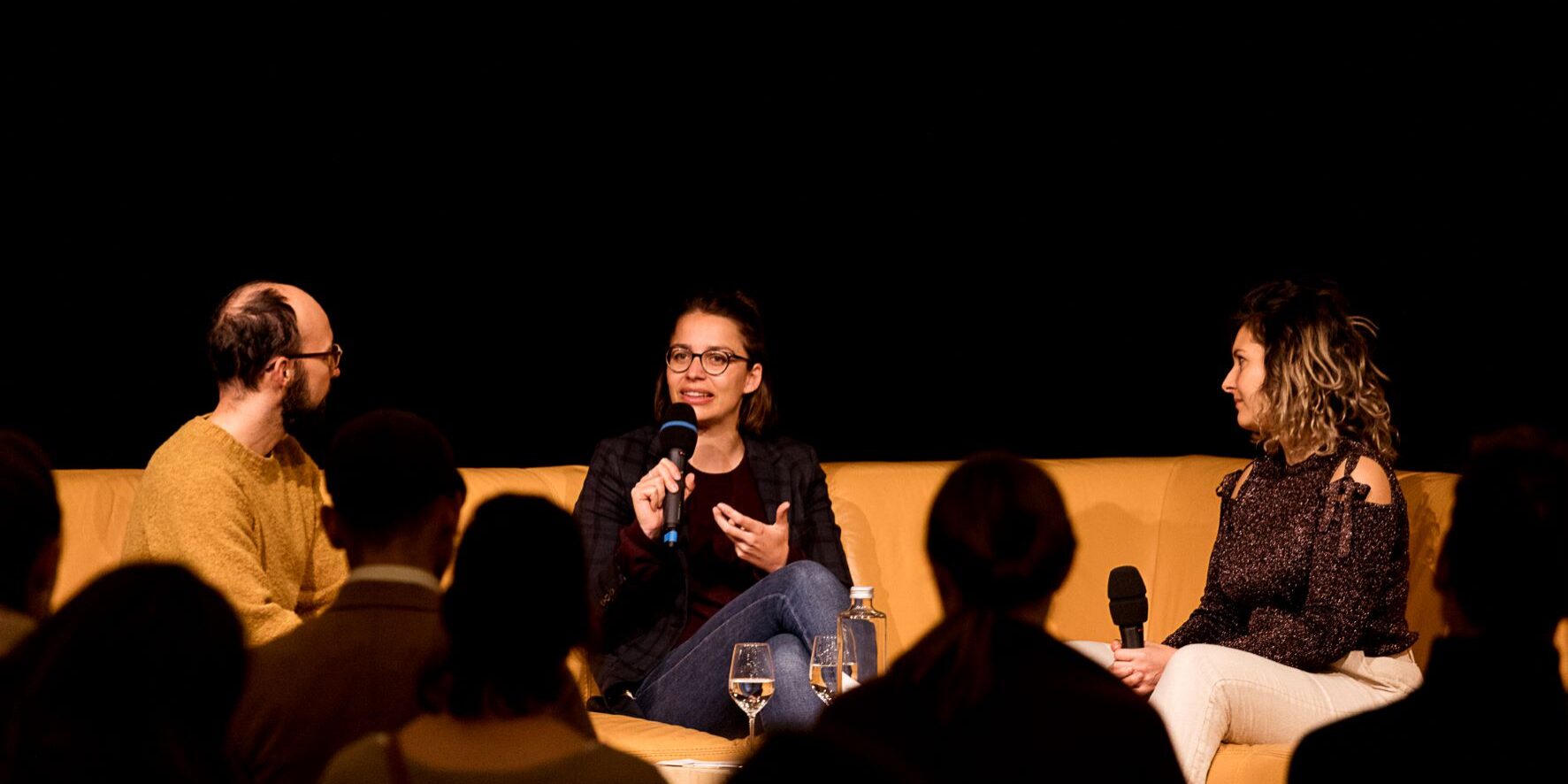How to create an enjoyable and sustainable Christmas dinner

Eating with the work team, feasting with the family: for many, this is part of the Christmas season. Traditionally, meat-heavy dishes with exotic ingredients are often served. Is this type of Christmas meal still in keeping with the times? How can we break with tradition without immediately triggering a (family) crisis? What can I look out for when planning a sustainable Christmas menu?
At the fourth Food Talk 2022 in Basel, Markus Hurschler moderated the discussion with the audience and the two experts from different fields:
- Kim Maurer, nutritionist at Basel University Hospital, member of the Bern Unverpackt and Weltacker Schweiz associations
- Noemi Muhr, political scientist, project manager in the area of space and mobility at ecos
What is a sustainable Christmas dinner? Is it enough just to give up meat?
Animal products definitely offer the greatest leverage for improving the carbon footprint of Christmas dinner. Avoiding meat, eggs and dairy products has a positive impact on the emission of climate-damaging gases. But it doesn't necessarily have to be a total renunciation; one approach could be to incorporate vegetarian or vegan components into the meal. For example, members of the public recommend cooking spinach tortellini in a fondue chinoise alongside the meat, or preparing the salmon rolls for the aperitif with vegan salmon (carrot strips with a little nori leaves). Or you can turn the tables: Meat is a side dish. One visitor talks about her menu, a fillet Wellington with beetroot instead of meat: "The menu is so visually and taste-wise great that meat becomes just a small side dish!" And if it still has to be meat, then it should be less, but of a higher quality, such as beef from grassland-based farming or meat from other label production. Or you can treat yourself to game meat from local hunts - no protein feed is used here and there are no major concerns about animal welfare.
In addition to the reduction of animal products, regionality and seasonality also play a positive role: if products from the region are used, transportation costs are eliminated and seasonal components can avoid the heating of greenhouses. Another positive effect of regional production: added value and jobs remain in the region. If produce is sourced directly from producers, a fair price can be paid for the work.
Does Christmas dinner have to be sustainable?
The experts believe that a Christmas dinner can also be simply enjoyable and cozy - after all, it is a meal with strong traditions. Nevertheless, eating has a lot to do with communication. Christmas dinner in particular offers a platform to give relatives new ideas and food for thought. Why not try something new? A vegan tartare for the aperitif? Chunks of vegetables for the fondue chinoise?
Kim Maurer has a tip: the acceptance of such dishes can be increased if they are not pigeonholed. Instead of serving dishes labeled "vegan", a great dish can simply be served "normally" without much explanation. This avoids triggering defensive reactions, because for many people a vegan diet is still stigmatized and a red rag. Such experiences are also shared by the audience: if there is a delicious vegetarian or vegan meal at a company dinner or in the canteen without any announcement, then the guests appreciate the good food. If you announce "vegan" or "vegetarian", you can be sure that there will be comments.
Less is more
With or without meat: Christmas dinners are often overflowing and this can lead to food waste. This is another area where good planning can reduce waste. If there are still leftovers, they can be stored well or the guests can be given a Tupperware with leftovers for the next few days as a farewell gift.
It's not just when it comes to food that there's an abundance of it: real "mountains of presents" are often exchanged at Christmas, which can lead to a lot of waste. "Less but better quality" is a valuable tip here too. Or you can get active yourself: why not bake or make something yourself? This way you give someone some of your time and the gift is unique. What's more, you can control exactly what product you use.
Of course, you can also seek a conversation and agree not to give gifts. In some families this is difficult, as is the case with Noemi Muhr. That's why her family does a lottery: the luck of the draw decides who to give presents to. This keeps the family giving presents to each other, but everyone only receives one gift.
Christmas therefore offers many opportunities to take steps towards a more sustainable lifestyle. And without sacrificing enjoyment and pleasure.
The FoodTalk is jointly organized by Crowd Containerthe Ebenrain Center for Agriculture, Nature and Nutritionthe Cooperative Food Network Basel - "Field to table", "Enjoyment from town and country"the IG Nutrition Forumthe Impact Hub Baselthe Market Hall Basel, Slow Food Basel and the Zero Waste Innovation Lab.
Become part of the crowd container community
With your contribution, we stay tuned. Whether at our various events, in direct discussions with producers or in our videos: We investigate your questions and change the way food is produced and traded today - always with the aim of getting closer to our vision of a diverse, climate-positive agriculture. Thank you for your support!